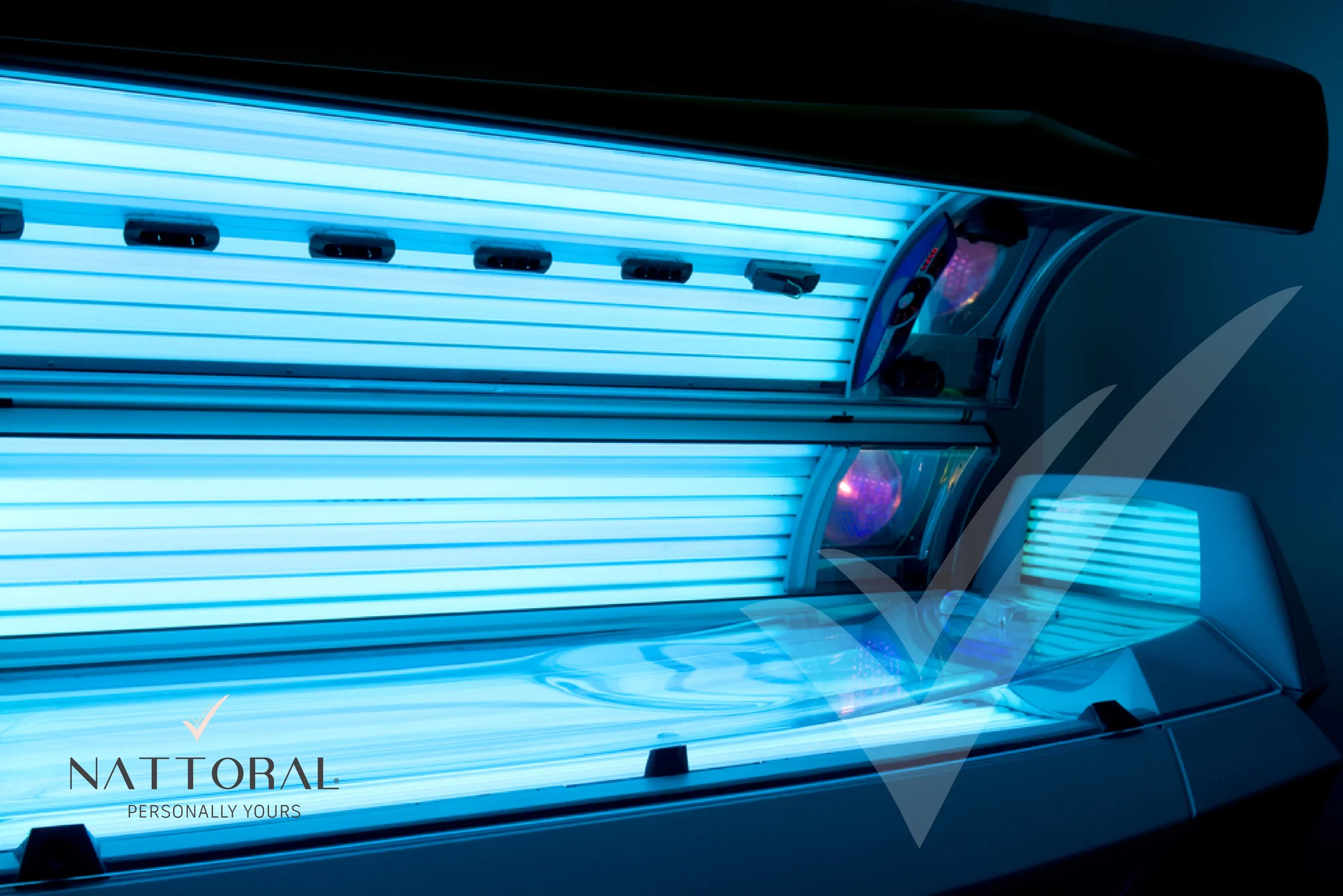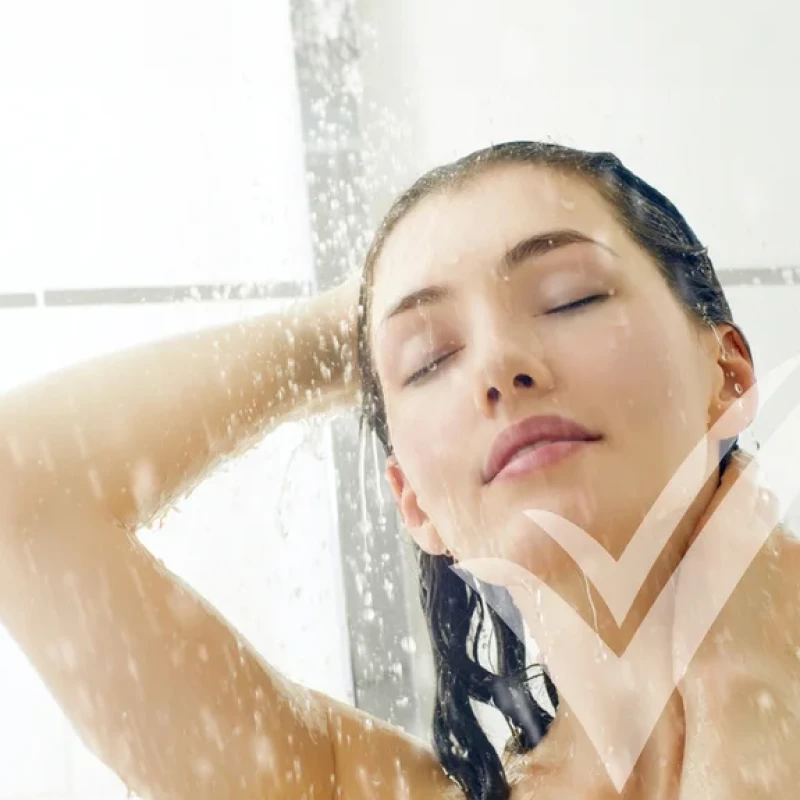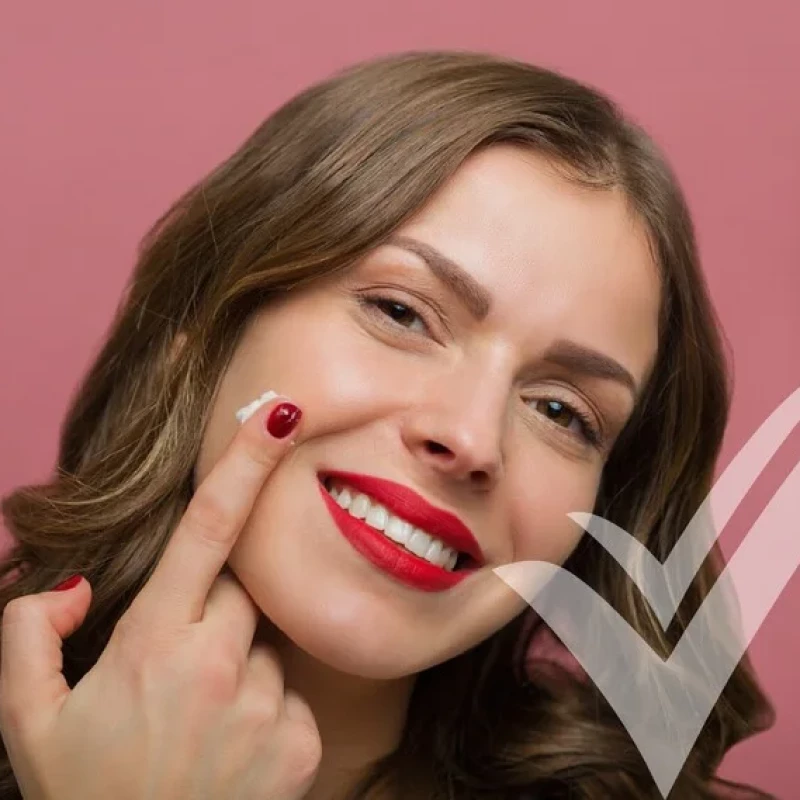As soon as the summer starts, everyone works on having that sun-kissed bronze skin, so we start exposing our body to the sun for long periods, and we may also lather it with products that are promoted to give the skin the perfect color in no time, but how does the skin color change when exposed to the sun? And are these products safe to use?
The exposure of the skin to the ultraviolet rays emitted by the sun directly affects the melanin pigment, which is responsible for skin color in two main ways, depending on the type of rays;
Type A-rays causes an oxidative reaction in the melanin, which causes its darkening and the appearance of the skin in a darker color than it was before, while exposure of the skin to the B-rays increases the production of melanin pigment and causes reactions in the cells that store the melanin inside, and this will cause darkening of the skin color.
The Effect Of Tanning On Skin's Health
But is it safe to expose the skin to these rays? Is the benefit of tanning limited to the aesthetic aspect, or is there a health benefit to tanning?
In fact, according to the Food and Drug Administration, tanning has significant negative effects on the skin, and some of them may be worrisome. To clarify things better, the negative effects can be explained from the simplest to the most severe in the following:
Skin Burns
The first thing that the skin suffers from when exposed to ultraviolet rays emitted from the sun is sunburn, and it occurs as a result of damage to the skin cells from ultraviolet rays, and as a reaction to the damage, our skin secretes chemicals to the brain to sense pain and burning, which emanates from the reaction of the immune system, which increases blood circulation to the area, making the skin appear reddish and feels much warmer. meanwhile the white blood cells responsible for defending the body, trigger an immune reaction that translates into a feeling of itching and peeling in the skin.
But is sunburn dangerous? it depends on the extent to which the skin is damaged by sunlight, as very severe or frequent burns may be a high risk factor for the development of melanoma.
Premature Skin Aging
The appearance of signs of aging is not limited to one’s age only, some may show signs of aging despite their young age, and exposure to the sun without protection may be the main factor for premature aging, as frequent sunburn or prolonged exposure to the sun may cause darker spots to appear all over the skin. In addition to significant loss in both collagen and elastin fibers, so the skin be comes wrinkled and looser, thus the aesthetic goal of tanning is lost.
![Untitled-1 [Recovered]-04](https://nattoral.com/storage/blog-images-web-final/the-sun-kissed-skin-at-what-cost-1/untitled-1-recovered-04.webp)
Skin Cancer
In the past, skin cancer known as melanoma appeared to affect only those over the age of fifty, but doctors have noticed that younger groups are affected by it, doctors correlate this shift with the exposure of the skin to ultraviolet rays for long periods, as happens when the skin is tanned, or the skin is not protected from the sun's rays.
Solar Keratosis
This condition is represented by the appearance of dry, scaly patches on the skin as a result of exposure to sun damage, and its color ranges from skin color to pink and red, and sometimes is accompanied by itching. Fortunately, this condition can be treated by a dermatologist.
Frequently Asked Questions About Tanning
Does using sunscreenreduce the risk of tanning?
Applying sunscreendoes not reduce the damage caused by tanning, but rather delays the effect of the sun’s rays on the skin, this means that you will be exposed to the sun for longer periods to obtain the required tanning. Thus counteracting the purpose sunscreens.
Do tanning beds have a similar harm?
Yes, and it can be much worse than sun tanning, because the concentration of ultraviolet rays in these beds is high, and exposes the skin to more severe damage compared to the sun.

Is Tanning A Good Way To Get Vitamin D?
No, because the rays responsible for obtaining vitamin D inside the skin cells are B rays, and most of the rays that cause tanning are A rays, so tanning is not a good and healthy way to get vitamin D.
Final Words
Beauty standards vary from day to day, and what is considered popular this year will become outdated next year, and for this we have to put our health as a priority. Unprotected exposure to the sun is associated with 60% of skin problems, such as acne, pigmentation, wrinkles and many more, which is why we stress on the importance of applying sunscreen and renewing it during the day.
References:
- “Tanning.” The Skin Cancer Foundation, 28 May 2021, www.skincancer.org/risk-factors/tanning/.
- Cherney, Kristeen. “Does Sunscreen Prevent TANNING? HOW Spf Works and More.” Healthline, Healthline Media, 19 Nov. 2019.


